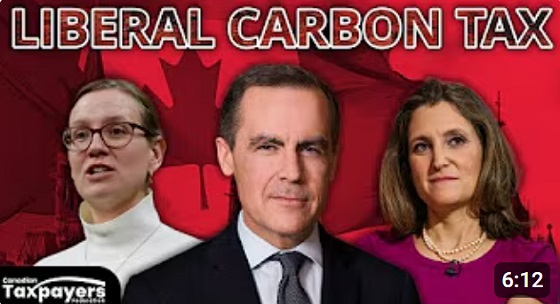Business
Do Minimum Wage Laws Accomplish Anything?

David Clinton
All the smart people tell us that, one way or another, increasing the minimum wage will change society. Proponents claim raising pay at the low end of the economy will help low-income working families survive in hyper-expensive communities. Opponents claim that artificially increasing employment costs will either drive employers towards adopting innovative automation integrations or to shut down their businesses altogether. Either way, goes the anti-intervention narrative, there will be fewer jobs available.
Well, what’ll it be? Canadian provinces have been experimenting with minimum wage laws for many years. And since 2021, the federal government has imposed its own rate for employees of all federally regulated industries. There should be plenty of good data out there by now indicating who was right.
The Audit is a reader-supported publication. To receive new posts and support my work, consider becoming a free or paid subscriber.
Historical records on provincial rates going back decades is available from Statistics Canada. For this research, I used data starting in 2011. Since new rates often come into effect mid-year, I only applied a year’s latest rate to the start of the following year. 2022 itself, for simplicity, was measured by the new federal rate, with the exception of British Columbia who’s rate was $0.10 higher than the federal rate.
My goal was to look for evidence that increasing statutory wage rates impacted these areas:
- Earnings among workers in full-service restaurants
- Operating profit margins for full-service restaurants
- Total numbers of active businesses in the accommodation and food services industries
I chose to focus on the food service industry because it’s particularly dependent on low-wage workers and particularly sensitive to labour costs. Outcomes here should tell us a lot about the impact such government policies are having.
Restaurant worker income is reported as total numbers. In other words, we can see how much all of, say, Manitoba’s workers combined took home in a given year. For those numbers to make sense, I adjusted them using overall provincial populations.
Income in British Columbia and PEI showed a strong correlation to increasing minimum wages. Interestingly, BC has consistently had the highest of all provinces’ minimum wage while PEI’s has mostly hung around the middle of the pack. Besides a weak negative correlation in Saskatchewan, there was no indication that income in other provinces either dropped or grew in sync with increases to the minimum wage.
Nation-wide, by weighting results by population numbers, we got a Pearson coefficient 0.30. That means it’s unlikely that wage rate changes had any impact on take-home income.
Did increases harm restaurants? It doesn’t look like it. I used data measuring active employer businesses in the accommodation and food services industries. No provinces showed any impact on business startups and exits that could be connected to minimum wage laws. Overall, Canada’s coefficient value was 0.29 – again a very weak positive relationship.
So restaurants haven’t been collapsing at epic, extinction-level rates. But do government minimums cause a reduction in their operating profit margins? Apparently not. If anything, they’ve become more profitable!
The nation-wide coefficient between minimum wages and restaurant profitability was 0.88 – suggesting a strong correlation. But how could that be happening? Don’t labour costs make up a major chunk of food service operating expenses? Here are a few possible explanations:
- Perhaps many restaurants respond to rising costs by increasing their menu prices. This can work out well if market demand turns out to be relatively inelastic and people continue eating out despite higher prices.
- Higher wages might lead to lower employee turnover, reducing hiring and training costs.
- A higher minimum wage boosts worker incomes, leading to more disposable income in the economy. Although the flip-side is that we can’t see strong evidence of higher worker income.
- Higher wages can force unprofitable, inefficient restaurants to close, leaving stronger businesses with higher market share.
In any case, my big-picture verdict on government intervention into private sector wage rates is: thanks but don’t bother. All that effort doesn’t seem to have improved actual incomes on a population scale. At the same time, it also hasn’t driven industries with workers at the low-end of the pay scale to devastating collapse.
But I’m sure it has taken up enormous amounts of public service time and resources that could undoubtedly have been more gainfully spent elsewhere. More important, as the economist Alex Tabarrok recently pointed out, minimum wage laws have been shown to reduce employment for the disabled and measurably increase both consumer prices and workplace injuries.
2025 Federal Election
MEI-Ipsos poll: 56 per cent of Canadians support increasing access to non-governmental healthcare providers

-
Most believe private providers can deliver services faster than government-run hospitals
-
77 per cent of Canadians say their provincial healthcare system is too bureaucratic
Canadians are increasingly in favour of breaking the government monopoly over health care by opening the door to independent providers and cross-border treatments, an MEI-Ipsos poll has revealed.
“Canadians from coast to coast are signalling they want to see more involvement from independent health providers in our health system,” explains Emmanuelle B. Faubert, economist at the MEI. “They understand that universal access doesn’t mean government-run, and that consistent failures to deliver timely care in government hospitals are a feature of the current system.”
Support for independent health care is on the rise, with 56 per cent of respondents in favour of allowing patients to access services provided by independent health entrepreneurs. Only 25 per cent oppose this.
In Quebec, support is especially strong, with 68 per cent endorsing this change.
Favourable views of accessing care through a mixed system are widespread, with three quarters of respondents stating that private entrepreneurs can deliver healthcare services faster than hospitals managed by the government. This is up four percentage points from last year.
Countries like Sweden and France combine universal coverage with independent providers and deliver faster, more accessible care. When informed about how these health systems run, nearly two in three Canadians favour adopting such models.
The poll also finds that 73 per cent of Canadians support allowing patients to receive treatment abroad with provincial coverage, which could help reduce long wait times at home.
Common in the European Union, this “cross-border directive” enabled 450,000 patients to access elective surgeries in 2022, with costs reimbursed as if they had been treated in their home country.
There’s a growing consensus that provincial healthcare systems are overly bureaucratic, with the strongest agreement in Alberta, B.C., and Quebec. The proportion of Canadians holding this view has risen by 16 percentage points since 2020.
Nor do Canadians see more spending as being a solution: over half say the current pace of healthcare spending in their province is unsustainable.
“Governments shouldn’t keep doubling down on what isn’t working. Instead, they should look at what works abroad,” says Ms. Faubert. “Canadians have made it clear they want to shift gears; now it’s up to policymakers to show they’re listening.”
A sample of 1,164 Canadians aged 18 and older was polled between March 24th and March 28th, 2025. The margin of error is ±3.3 percentage points, 19 times out of 20.
The results of the MEI-Ipsos poll are available here.
* * *
The MEI is an independent public policy think tank with offices in Montreal, Ottawa, and Calgary. Through its publications, media appearances, and advisory services to policymakers, the MEI stimulates public policy debate and reforms based on sound economics and entrepreneurship.
2025 Federal Election
POLL: Canadians say industrial carbon tax makes life more expensive

The Canadian Taxpayers Federation released Leger polling showing 70 per cent of Canadians believe businesses pass on most or some of the cost of the industrial carbon tax to consumers. Meanwhile, just nine per cent believe businesses pay most of the cost.
“The poll shows Canadians understand that a carbon tax on business is a carbon tax on Canadians that makes life more expensive,” said Franco Terrazzano, CTF Federal Director. “Only nine per cent of Canadians believe Liberal Leader Mark Carney’s claim that businesses will pay most of the cost of his carbon tax.
“Canadians have a simple question for Carney: How much will your carbon tax cost?”
The federal government currently imposes an industrial carbon tax on oil and gas, steel and fertilizer businesses, among others.
Carney said he would “improve and tighten” the industrial carbon tax and extend the “framework to 2035.” Carney also said that by “changing the carbon tax … We are making the large companies pay for everybody.”
The Leger poll asked Canadians who they think ultimately pays the industrial carbon tax. Results of the poll show:
- 44 per cent say most of the cost is passed on to consumers
- 26 per cent say some of the cost is passed on to consumers
- 9 per cent say businesses pay most of the cost
- 21 per cent don’t know
Among those decided on the issue, 89 per cent of Canadians say businesses pass on most or some of the cost to consumers.
“Carbon taxes on refineries make gas more expensive, carbon taxes on utilities make home heating more expensive and carbon taxes on fertilizer plants increase costs for farmers and that makes groceries more expensive,” Terrazzano said. “A carbon tax on business will push our entrepreneurs to cut production in Canada and increase production south of the border and that means higher prices and fewer jobs for Canadians.”
-

 2025 Federal Election2 days ago
2025 Federal Election2 days agoNo Matter The Winner – My Canada Is Gone
-

 2025 Federal Election2 days ago
2025 Federal Election2 days agoASK YOURSELF! – Can Canada Endure, or Afford the Economic Stagnation of Carney’s Costly Climate Vision?
-

 Alberta2 days ago
Alberta2 days agoMade in Alberta! Province makes it easier to support local products with Buy Local program
-

 2025 Federal Election2 days ago
2025 Federal Election2 days agoCSIS Warned Beijing Would Brand Conservatives as Trumpian. Now Carney’s Campaign Is Doing It.
-

 2025 Federal Election2 days ago
2025 Federal Election2 days agoInside Buttongate: How the Liberal Swamp Tried to Smear the Conservative Movement — and Got Exposed
-

 Bruce Dowbiggin1 day ago
Bruce Dowbiggin1 day agoIs HNIC Ready For The Winnipeg Jets To Be Canada’s Heroes?
-

 Alberta2 days ago
Alberta2 days agoProvince to expand services provided by Alberta Sheriffs: New policing option for municipalities
-

 COVID-191 day ago
COVID-191 day agoCOVID virus, vaccines are driving explosion in cancer, billionaire scientist tells Tucker Carlson









